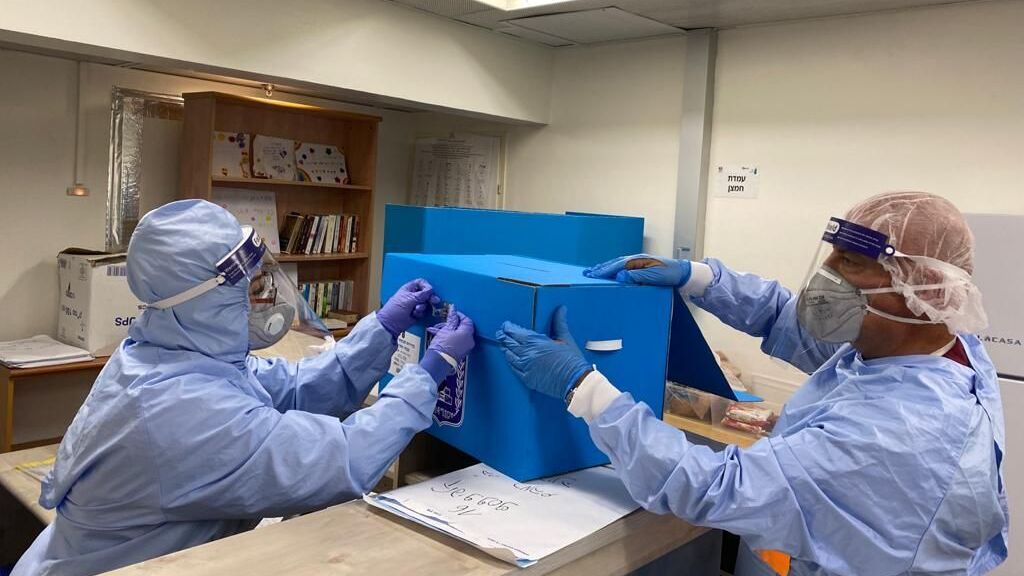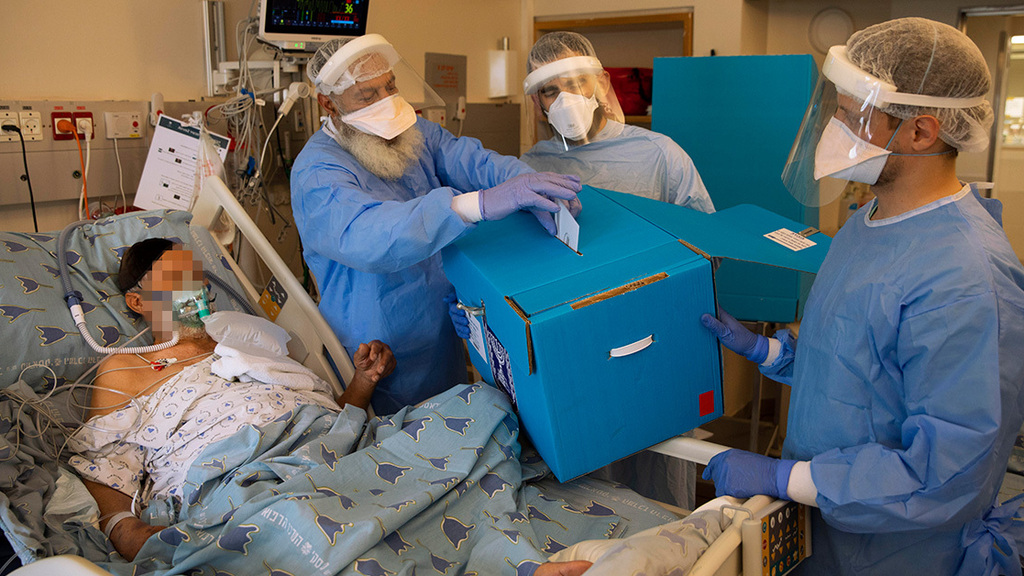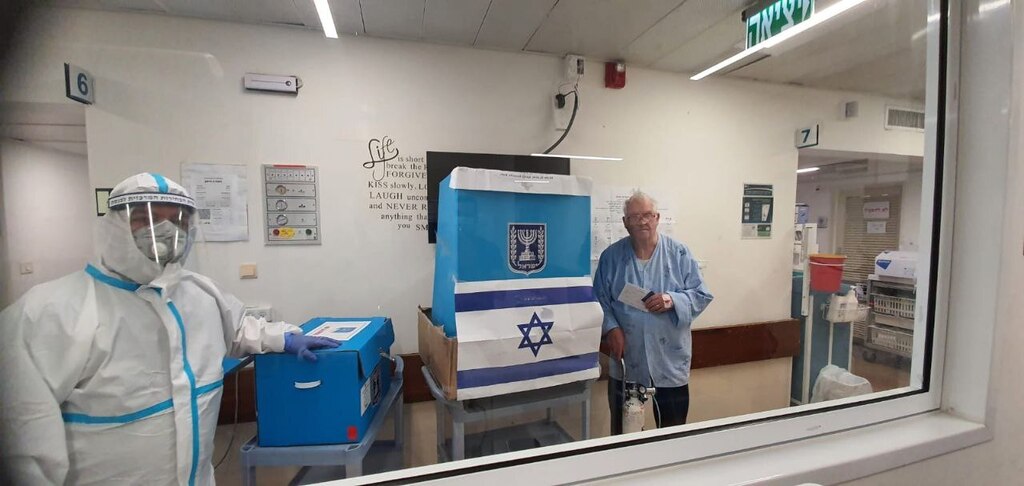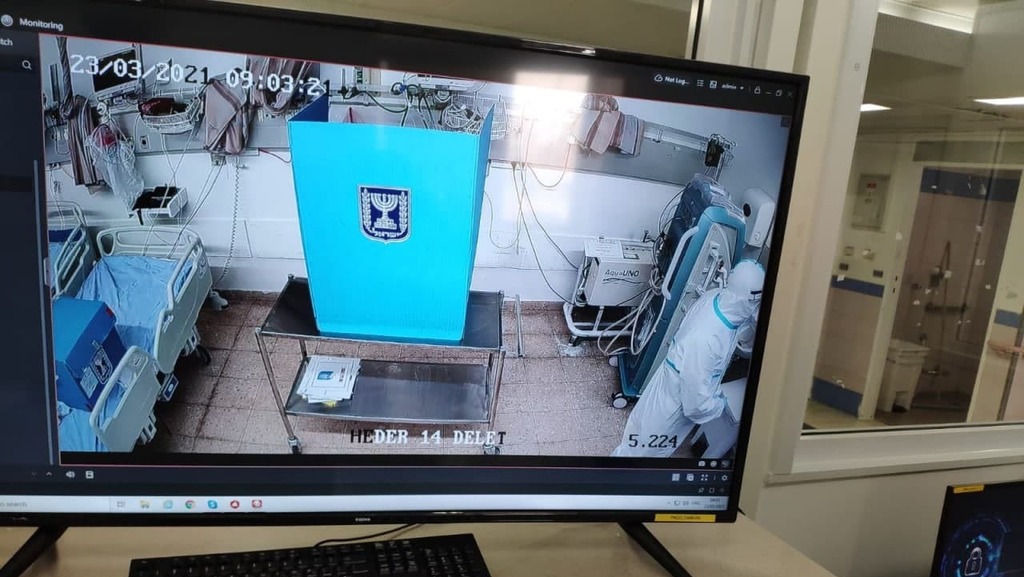Millions of Israelis headed to the polls on Tuesday in the country's fourth election in two years, as special arrangements were made to accommodate patients hospitalized in coronavirus wards across Israel.
Israelis began voting at 7am, with exit polls expected at 10pm, when polling stations close. By 2pm, 34.6% of Israelis cast their votes, lower than the same figure reported during the previous national vote.
4 View gallery


Preparing the dedicated polling station in Rambam Healthcare Campus in Haifa
(Photo: Rambam)
In order to avoid the spread of infection, the Central Elections Committee had instructed the hospitals ahead of Election Day on how to stage the vote at their respective coronavirus wards, which includes setting up dedicated polling stations.
As per the committee’s instructions, the staff in these mobile stations - made up of various hospital employees - must be Green Pass holders and must be required to wear full protective gear throughout the Election Day.
4 View gallery


A mobile polling booth on the coronavirus ward at Ichilov hospital in Tel Aviv
(Photo: AP)
In addition, members of the election committee will watch the voting process in these wards through closed-circuit screens, in order to verify the integrity of the unusual voting process.
"I’m saluting them for bringing the ballot boxes to us,” said 45-year-old coronavirus patient, Jalal Masrawa, who cast his vote at Hillel Yaffe Medical Center in Hadera. “The staff members came into my room and asked me if I wanted to vote, I told them I did, showed them my ID and voted. There’s a good team that saw to it that patients could vote as well,” Masrawa added.
4 View gallery


Polling station at Hillel Yaffe Medical Center in Hadera
(Photo: Hillel Yaffe Medical Center)
"I am very happy the patients are being given the chance to fulfill this important democratic duty," said Dr. Tatiana Mikhalov, director of Hillel Yaffe Medical Center’s coronavirus ward. "The logistics are very complex, and I applaud the hospital staff who enlisted for this important mission."
The dedicated polling stations are also open to inpatients from other wards, as well as hospital staff who cannot go out and vote due to their job.
"The voting process is working well," said Shavi Shmelo, vice president of human resources at Tel Aviv’s Ichilov Hospital. “In our coronavirus ward, three people have so far voted. In past elections, around 1,100 people voted at Ichilov. So far, I think our voting trend looks promising.”
4 View gallery


Voting process being monitored at Barzilai Medical Center in Ashkelon
(Photo: Barzilai Medical Center)
At Rambam Healthcare Campus in Haifa, four polling stations were set up, one of which was intended for coronavirus patients only.
The first in line to vote there was 29-year-old Ismail Bahuti, who contracted coronavirus after receiving the first vaccine shot. The second in line was 80-year-old Allegra Israel from Haifa. Surprisingly, she arrived at the ballot box with a Green Pass. She said she had contracted the virus and became ill despite being fully vaccinated.
Despite the praise from the hospital staff and patients for their efforts to enable those confined in coronavirus wards to vote, the Central Elections Committee said the number of actual voters in these dedicated polling stations is still very low, and are therefore calling on all those who have yet to cast their votes to do so.

